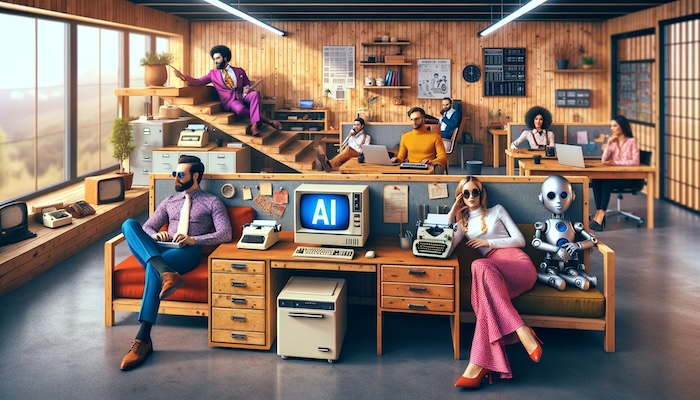Was Wall-E right?

During my walk this morning, I listened to the Latent Space podcast, which praised the innovations of imbue.com in the realm of AI autonomous agents.
I'm deeply involved in this area at Path, where we harness AI to enhance our workflow with limited resources. We're also exploring the potential of AI-driven products designed to bolster specific roles. The goal? To allow individuals to concentrate on pivotal aspects of their jobs, thereby amplifying their contributions to their fields.
However, a nagging thought interrupted my enthusiasm: could such advancements make us complacent?
Let's take a brief trip down memory lane. Circa 1994, I designed a bookmark list for our school's intranet library. This list comprised curated links, vetted by teachers, to assist students in their academic endeavors. But as the internet evolved, search engines like Alta Vista emerged, revolutionizing the way we sought information. Initially, I felt that these tools made me lazier—I'd spend more time searching than applying knowledge. But over the years, this approach became the norm. Why remember every detail of the Java SDK when a quick search yields the answer? This shift has personally empowered me to diversify my knowledge, applying it in both my professional and personal spheres.
With the advent of AI, I've begun delegating even more tasks. Tools like ChatGPT and other OpenAI clients assist me in software development, marketing, and copywriting. In fact, this very blog post was refined by ChatGPT—I wanted to ensure clarity and coherence in my message without getting bogged down by grammatical nuances. It did though fail at creating an image for this, something we're aiming to fix at Path.
But is this reliance on technology detrimental? Time will tell. I remain optimistic that humans will persist in pushing the boundaries of our knowledge, creativity, and expertise—attributes that machines may never fully replicate. I know I will.
However, for those without an entrepreneurial spirit, there's a pressing need to overhaul our educational systems. Why? The skills gap is widening. I foresee many traditional roles, including entry-level software development, being automated. Will this render some young professionals obsolete? Not if they can evolve and specialize in niches that machines can't emulate.
I'm genuinely excited about the potential societal shift. I firmly believe everyone has a unique passion or talent, often pursued in their free time rather than in their day jobs. Imagine if people could channel this passion into their careers, immersing themselves in endeavors that truly resonate with them. This depth of engagement and creativity might surpass anything AI could achieve.
On a side note, if you haven't seen Wall-E yet, make it your weekend watch.